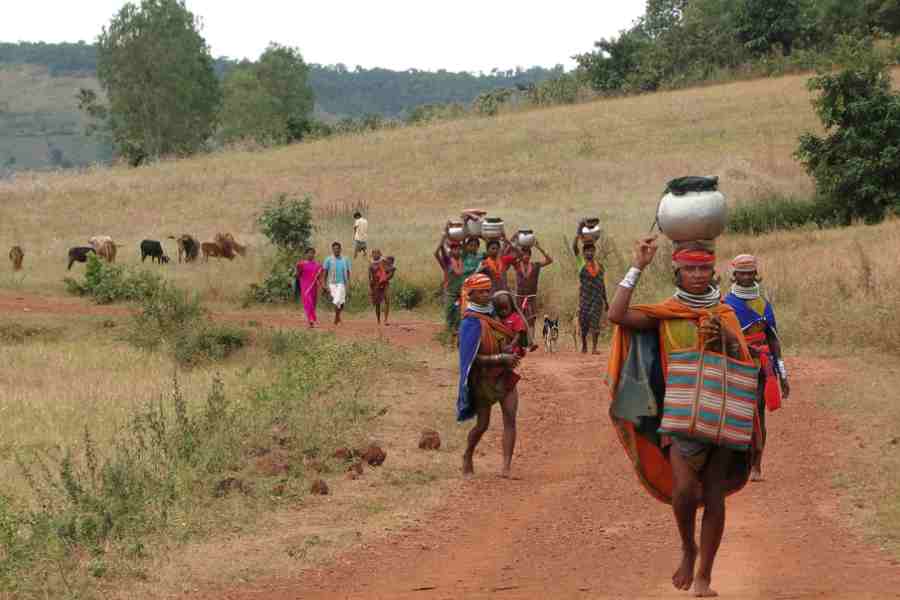Six nondescript villages with a mixed tribal and non-tribal population in Maharashtra’s Yavatmal recently won community forest rights under the Forest Rights Act, 2006 after years of struggle. They collectively harvested and auctioned tendu leaves this summer and earned Rs 56 lakh in income. Nearly a thousand villagers together earned a wage of Rs 32 lakh — an average of Rs 30-32,000 per head — from 17 days of labour, while the six gram sabhas reserved the remaining amount for their development funds. For the first time, these villagers did not have to borrow money from private creditors ahead of the ensuing agricultural season for buying raw material. They had enough cash in their hands to prepare for the kharif season.
These villages would now receive more income around the year from other minor forest produce. But more than the financial benefits, these villages have now learnt lessons about collective wisdom and the difficulties of a consensual model of local self-governance — this, ironically, at a time when the Indian polity is adrift and basking in the glory of authoritarianism at the national level. This is but one example of the economic transformation that CFR could bring to villages conferred with rights to their traditionally conserved forests.
The question is, why are state governments not taking the initiative to acknowledge the CFRs of thousands of villages across India even though there is enough empirical evidence that the FRA is a game-changer? It’s been 25 years of the Panchayats (Extension to the Scheduled Areas) Act and over 15 years of the FRA, two of the most progressive laws passed by the Indian Parliament. Yet, their implementation faces hurdles and resistance from executives that are steeped in a colonial mindset. One estimate by civil society groups says that the FRA has achieved only 15% of its total potential because governments and their administrations remain reluctant to let go of their turf. Decentralisation can bring dividends, but there’s a caveat to it: people must fight to win the power that some of these laws promise them from the State.
Take, for instance, Gadchiroli, one of Maharashtra’s tribal-dominated, thickly forested districts with rich biodiversity — many economically backward tribal villages fought hard and won CFRs over the last 15 years despite stiff resistance from the state. That journey began with a tiny village of Mendha Lekha, in north Gadchiroli, which led a struggle for 40 years with the battle cry, “Mawa Nate Mawa Raaj (My village, my rule)”. It’s a glowing example in local self-rule.
The villages that won rights over their forests are scripting an economic transformation that no government programme or dole could ever bring to them. Ten years ago, many of these villages won their CFRs and begun to diligently harvest minor forest produce — tendu, bamboo, vegetables, fruits and so on. They devised procedures and precedents for auctioning the produce. Not only did the villagers earn a better livelihood than they did as wage-labourers when the FRA was not in effect, but village councils also mopped up funds for their own development. Even remote villages have witnessed socio-economic transformation that could only be called unprecedented. All this, while significantly reducing Left-wing extremism.
Chhattisgarh was slow to join the movement, but it has caught up and come up with the idea of bringing minor forest produce under a minimum support price mechanism.The result is that livelihood options have opened up, exploitation has reduced or stopped and local governance is steadily working. Other states need to catch up — tribal India would immensely benefit from it, having been under subjugation and deprivation for ages.










